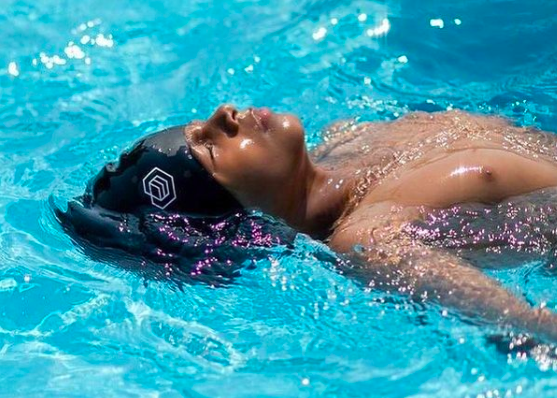
The Cookout: Swimming in racism
By Grace Kabengele, September 16 2021—
The stereotypical belief that Black and African people cannot swim has been around for generations. This has been bolstered by racialized scientific explanations such as “our muscles don’t twitch at the right speed,” “our bones are too dense,” or because we have “larger bottoms that will drag us under water.” These attempts to use “genetics” to explain the low rate of swimming amongst Black people drive racialized beliefs to flourish and only continue to justify racism and prejudicial attitudes. Black people not being able to swim is likely a symptom of a larger issue — one of access and representation.
The history of recreational segregation is a largely forgotten one but has had many implications for modern swimming as swimming pools and beaches were among the most segregated public spaces in Canada and the United States. White people held stereotypical attitudes towards Black people viewing them as diseased and sexually threatening which, backed by city leaders, brought justification for segregation. With attacks from white teenagers who threw nails and poured bleach or acid within the segregated pools for Black people, it was fear that stunted the accessibility of these recreational sites. Issues of accessibility may be seen in modern disputes surrounding the Soul Cap, a swimming cap designed to protect the hair of swimmers with thick, voluminous hair. The Soul Cap was an ideal hair tool for those with dreadlocks, weaves, hair extensions, braids, thick or curly hair. To deny such a tool of accessibility to Black athletes is inherently racist and simply adds to the plethora of historical exclusion for them in the world of athletics.
Oftentimes, discussions of representation within various systemic and systematic institutions reveal a need for more diverse and inclusive groups to be present within such fields. For persons of colour, however, opportunities for representation are often riddled with the disappointment of injustice and prejudice within their experience. The ban on the Soul Cap showed that the distinct experience of Black swimmers was going to be, once again, unrecognized. As had been underlyed in the tumultuous relationship between Black people and recreational sites for swimming in the past, Black people’s needs are being shown to be neglected.
The predominance of white athletes within the field is a testament to the racial disparity within the sport and the ban on the specialized sportswear — a reminder of the histories of institutional racism present within athletics. Recognition and representation go hand-in-hand as it is merely from understanding the privileged experience that change can be made. Swimming is not the only sport that lacks representation of diverse groups, however, none may deny the little uptake of racialized swimmers at the elite level. To address this shortage, we must work towards recognizing the experience of racialized groups and work to address their complex needs so they stand to be represented within any and all athletics.
We need only look at the roster of swimming athletes at the University of Calgary to exemplify the ways in which the sport is underrepresented by Black student athletes. Although it is difficult to frame the exact extent to which the sport of swimming has lacked in diversity, it is easy to notice the few members of colour within both the Men’s and Women’s Dinos swimming teams.
In honour of Black History Month this past February, Swimming Canada took time to highlight the contributions and achievements of Black Canadian swimmers and coaches within the community and ended up highlighting some of the distinct experiences of racialized athletes in their pursuit of competing for Canada on the world stage.
During Swimming Canada’s interview with athlete Debbie Armstead, Armstead stated that “we knew there was racism, but we weren’t mocked.” Not only was Armstead the first Black swimmer at the University of Calgary, she had made the Olympic team, world championships and coached within Alberta as part of the team with Olympic Gold Medalists Mark Tewksbury and Tom Ponting. Armstead has an impressive background within the sport but found that she went under acknowledged for her accomplishments as an athlete, likely due to her race.
It is time that Black people begin to be spotlighted within the field, and recognizing athletes like Debbie Armstead is step one.
Welcome to the Cookout! As an homage to the metaphorical gathering of and for Black people, typically for food and discussion, the Cookout column will address all things Black life. The menu for this column is meant to highlight the experiences of Black people in all sectors of life. This column will dish on hard discussions around race, racial inequality, systemic and systematic racism and we will give time to celebrate Black identity, culture and excellence. Our approach hopes to tackle issues of race, and give a personal, yet wide-reaching look at the Black culture and identity. This column is a part of our Voices section.
